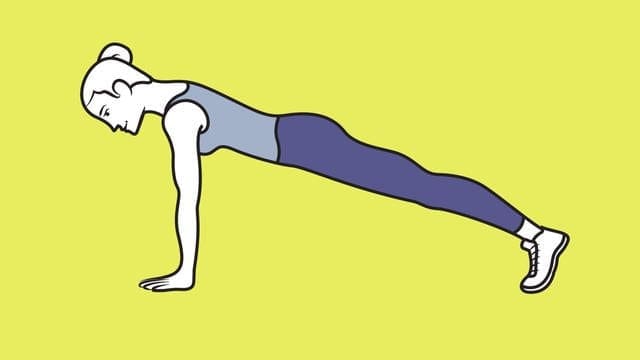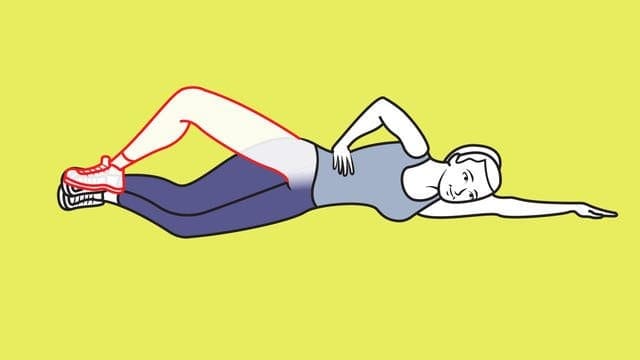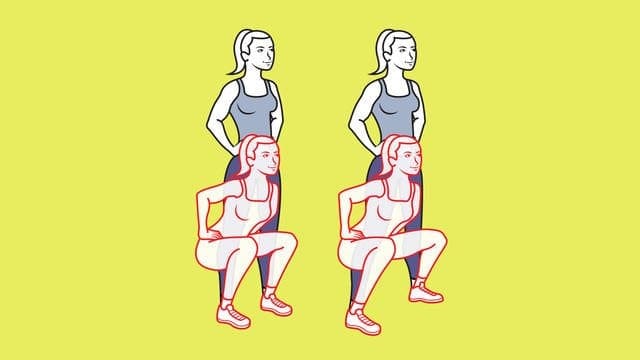
by Dr Alex Jimenez DC, APRN, FNP-BC, CFMP, IFMCP | Fitness, Health, Wellness
You do endless squats.�You�ve tried the booty band. You�ve danced along to Brazilian Butt Lift�DVD workouts. Yet somehow you still aren�t the proud owner of a tush that resembles the peach emoji.
The truth is, the appearance of your butt is partially out of your control,�says Harley Pasternak, celebrity trainer and Fitbit ambassador.��Genetics�is the number-one component of the size and shape of your butt,� he says. �Different ethnicities also have certain biological predispositions for adiposity in different parts of the butt, or different waist-to-hip ratios that give the butt and hips a particular look,� he adds.
Pasternak also notes that how you’ve used your glutes throughout your life may also dictate the natural development of your butt. �So someone who was a gymnast as a kid might have more developed glutes, or an easier time toning the glutes as they get older, than someone who maybe didn�t do any sports as a child,� he explains.
Now for the good news: Just because you can’t necessarily battle the natural curve of your booty doesn’t mean you can’t amp up the assets you have, he assures. Plus, there are so many benefits of developing a strong, toned tush that go beyond how it fills out your jeans. Having strong glutes can make you a better runner, improve your posture, and more.
So genetics aside, what else could be�stalling your dream derriere? There are other little�errors that people unknowingly make that can take the emphasis off of the glutes,�Pasternak says.�Make these�exercise and lifestyle adjustments to accelerate your results.
Don’t rely on the same old butt exercises
Certain moves that we often associate with the glutes�actually recruit other large lower-body muscles (namely�the quadriceps) to do most of the work.�”This tends to be�the case with basic body-weight squats and leg presses,” Pasternak says.
Instead, Pasternak recommends focusing more on unilateral movement, or working one side of the body at a time so that other large muscles in both legs don’t dominate.�”Unilateral training�will�allow you to access the�glutes more directly,” he says. Moves to work into your butt�routine: single-leg deadlifts, lunges, and lying single-leg hip thrusts.
Related: 4 Moves to Perk Up a Flat Butt
Add hills and speed drills to�your cardio
“Your butt is mainly fat. That�s just a fact,” Pasternak says�and fighting flab requires�a combo of cardio and a healthy diet. But you should be doing more with your�cardio than steady treadmill runs if you want to zero in on the�glutes, he says. “Steady running can actually�shorten the hamstrings and cause the glutes to become disengaged,” he says.
Instead, opt for walking or sprinting.�”Walking forces you into�a longer stride, which gives you the opportunity to access your glutes�better. Sprinting requires your knees to lift higher, which also fires up the glutes,” Pasternak explains.
For�even more effective butt-targeting cardio, add incline. “I think stairs are just the most underrated glute�blaster�there is,” Pasternak says. “I recommend that all my clients hit a step goal of 10,000 or 15,000 steps per day, and at least 1,500 of those should be on hills or stairs if you want to really want to tone the glutes fast.”
Sit less, stretch more
Putting all of your bodyweight on your butt for hours upon hours each day�can actually change the shape of it, Pasternak says.��Sitting also shortens and tightens the hip flexors, which impacts our ability to really activate both our�glutes�and core even when we’re not seated,” adds�physical therapist David Reavy, owner of React Physical Therapy in Chicago, Ill.
After a period of being sedentary (and especially before going from desk chair to workout), Reavy suggests doing�these three exercises to help lengthen the front of your body and�re-activate the glutes:
Mobilization backbend: Start in a split stance, with one foot slightly behind you and the heel slightly raised. Reach back with the arm of the same side and place your�fist on your sacrum. Lean back as far as you can and hold for a few seconds.�Repeat the movement on the other side.�Do about 10 reps on each side, bending back as far as you can each time.
Hip-flexor release:�Lay on your stomach and put a lacrosse ball under your psoas. Allow your bodyweight to release onto the ball as much as possible�without pain and lay�until you feel your hip flexor relax.
Hip thrusts:�Put your shoulders on a flat bench, heels on the ground. Using your glutes, lift your hips up to a bridge position, hold for a few seconds and lower your hips. Reavy suggests putting a resistance band around your thighs for added challenge: �This helps turn on your external rotators, which are part of your glutes, so you�ll be working your butt all the way around,� he says. Do three sets of 10 to 15 reps.

Call Today!

by Dr Alex Jimenez DC, APRN, FNP-BC, CFMP, IFMCP | Agility & Speed, Fitness, Health
Working out in the gym is great, but even the biggest treadmill loyalists can get bored on the moving belt. Our advice? Mix up your sweat sessions whenever you can. Introducing different types of movement into your fitness routine can actually help you get in shape faster because they challenge your muscles in new ways.
That�s why we love with this samba reggae dance workout. It�s a total change of pace from your standard barre class. And you don�t need to be a pro dancer to try the moves either.
Samba Workout
In the video, dance teacher Quenia�Ribeiro, of the�renowned dance school Ailey Extension demonstrates basic samba reggae moves that work up a solid sweat. Ready to get down and groove? Follow along for a heart-pumping, fat-blasting workout you�ll actually have fun doing.
RELATED: 12-Minute Dance Cardio Workout With Katie Austin�
- Samba reggae basic step: Standing with your feet slightly wider than hip-width, bounce from one foot to the other, moving your hips from side to side as you bounce.
- The snake: Adding on to the basic step, roll your upper body and arms in a snake-like movement to the right as you step to the right side. Clap as you return your torso to center, then repeat on the left.
- The shake: Standing with your feet slightly wider than hip-width, step your right leg out to the side as you sit into a squat and pop the hips forward and back. Continue to stay low as you repeat this movement on the other side, stepping out with the left leg. Stay loose in the hips as you alternate stepping out onto each leg.
- Cross-and-pull: From standing, step and cross the right leg over the left as you pull the right arm down in front of the body. Return to center and repeat on the left. Bounce from side to side as you alternate doing this cross-and-pull movement on the left and right.
- Window washers: Standing with your feet slightly wider than hip-width, shift your weight as you bounce your hips from one side to the other, holding your arms out to each side and moving them in quick circular movements, as if washing windows.

Call Today!

by Dr Alex Jimenez DC, APRN, FNP-BC, CFMP, IFMCP | Fitness
Trying to be a better runner? It’s not just about logging miles (although that certainly helps). The key to running strong and long also has a lot to do with shoring up your muscles, activating your core and back in addition to your lower body,�and keeping your movements fluid. To help do that, start incorporating these full-body strengthening�moves from Nike+ Run Club coach Julia Lucas to your routine three days a week, before or after a run. You’ll start noticing a difference in your strength in no time.
1. Planks
�
Planks have long been considered one of the best exercises for your core. In addition to your abs, this move engages your back, quads, and hamstrings, making it a great full-body exercise for runners. To do it, get into the �up� part of a push-up, with palms�on the floor directly under shoulders and legs extended behind you, forming a straight�line from head to heels. Hold for 10 to 30 seconds, keeping abs tight. Do�2 or 3 sets.
RELATED: 20 Ways to Do a Plank
2. Clamshells

Clamshells work your hips and glutes, parts of the body that runners regularly need to activate. To do them, start out by lying�on your side with legs stacked and knees bent at 45 degrees. Rest head on arm; place top hand on hip. With inside edges of feet touching, lift top knee as high as you can without shifting hips or pelvis. Pause; lower knee. Do 2 or 3 sets of 10 reps per side.
3. Side squats

Side squats are a great way to strengthen your outer highs, hips, and glutes. To do, stand with feet hip-width apart, hands on hips; squat. Stand; move left foot a step out. Squat again; step left foot in as you rise. Continue, alternating sides. Do 2 or 3 sets of 10 to 12 reps per side.
Pin all of these moves for later:


by Dr Alex Jimenez DC, APRN, FNP-BC, CFMP, IFMCP | Fitness, Health, Wellness
Add lean protein to every meal and snack
Weight-loss experts have always encouraged us to fill our plates with produce as a way to reap the benefits of its hunger-busting fiber, along with its antioxidants and other nutrients. But if you�ve been laser-focused on loading up on fruits and vegetables, your diet may need more lean protein. You should have a serving every few hours, says Brill. Nuts, eggs, and meat are more caloric than an apple or a pile of power greens�but the protein will keep you full longer and can lower your overall calorie intake for the day.
Moreover, a 2015 study published in The American Journal of Clinical Nutrition showed that incorporating protein into every meal and snack�starting with breakfast�helps control appetite and manage body weight. “A balanced diet that includes some protein helps fuel your muscles,” explains Brill. And as you already know, the more lean body mass you have, the higher your metabolic rate will be. Not to mention, your body has to work harder to digest protein, and through that process you burn even more calories.
RELATED: 13 High-Protein Breakfast Recipes and Ideas
Don�t protein-load. But do try making a more conscious effort to get small, regular doses: Eat eggs or almond butter in the a.m., for example. Make meat, fish, or legumes (like beans and peas) a key component of your lunch and dinner. And snack on hummus, nuts, kefir, or roasted chickpeas�all protein-packed picks to fuel your way to fit.

by Dr Alex Jimenez DC, APRN, FNP-BC, CFMP, IFMCP | Fitness, Health, Wellness
This article originally appeared on People.com.�
Erin is a self-proclaimed exercise addict.
The 39-year-old from San Diego, California reveals on Tuesday�s episode of�the syndicated daytime series The Doctors�that she builds her whole life around fitting in workout sessions.
�I exercise eight�hours a day,� she says in an exclusive clip. �I never get tired, I don�t get sore.�
Even Though Her Body Can Seemingly Handle Her Excessive Workouts
They do not make her feel good.
�I�ll cancel plans, I�ll cancel appointments. It�s been controlling my life,� she says. �I just can�t stop. It�s not giving me the rush that I used to feel just doing three to four hours.�
Erin says she squeezes in early morning workouts before work, and then returns to the gym when she is done for the day.
RELATED:�Why You Should Rethink Your Spinning Obsession
�Around 5 o�clock is when I work out, and then I go to work, and then I work out for another two hours,� she says.
But Erin also reveals she has been using exercise to avoid a painful trauma she experienced in the past.
�Eight months ago I got a message from a girl. It triggered a memory that I had suppressed for 30 years,� she says in the clip.
�Basically I�ve Been Adding On Exercise So I Can Just Forget.�
Host Dr. Travis Stork commends Erin for seeking the help she needs to fight her addiction.
�Before we get into where we need to go from here, we have to acknowledge where we are right now,� he says. �I�m so happy you realize that you need to change, because when I saw those blood pressure readings, there are things in medicine we call hypertensive urgency, and those blood pressure numbers [are] quite alarming.�
Gastroenterologist Dr. Jorge Rodriguez, who is working to treat Erin, says he was also alarmed by the results.
�In the six years that I�ve done the show with you, Erin is the most ill person, the sickest person that we�ve had on the show in my opinion,� he says.
To find out more of her test results and to see if�The Doctors can help Erin, check your local listings and tune into Tuesday�s episode.

Call Today!

by Dr Alex Jimenez DC, APRN, FNP-BC, CFMP, IFMCP | Fitness, Health, Wellness
Here�s to a different kind of body transformation. On Instagram yesterday, fitness influencer Anna Victoria shared a�follower�s photos that document her inspiring recovery from an extreme exercise habit.
In the “before” pic, @barbellkell_fbg is flexing her biceps in a bikini that shows off her chiseled six-pack.
What It Took To Get That Sculpted Bod Was Anything But Healthy

The photo on the left was taken a year and a half ago, when @barbellkell_fbg was committed to a 10-week plan that involved working out�five times a week, sometimes twice a day, and counting macros (down to chewing gum, vitamins, and cough drops), she explains in the caption. “[Z]ero balance, zero living, zero sustainability,” she wrote. “I had my full time job and this, which was another full time job basically.”
The strict dieting and intense workouts�took a serious toll. By the end of the plan, @barbellkell_fbg had a flat belly, and no trace of cellulite�but her energy levels had plummeted. “I could barely lift my feet to run on the treadmill,” she wrote. A blood test showed her white blood cell count was severely depressed. It was so low her doctor wanted to test her for cancer, she says.
After convincing him to do another blood test in a month, @barbellkell_fbg�committed to getting back to “normal.” She ate “to survive,” she said;�and in time, she gained fat and her white blood cell count recovered.
OD’ing on exercise�is a real thing, and it can�cause everything from fatigue to chronic achiness�even an elevated heart rate, which puts more demand on your ticker. “Overexercising�often contributes to pain,�dehydration, or electrolyte imbalances, all of which can lead to an increase in heart rate,” Kathryn Berlacher, MD, a cardiologist at the University of Pittsburgh School of Medicine, explained to�Health in a prior interview.
Signs That You’re Overdoing It At The Gym
And tips on how to scale back�check out our guide to the symptoms of overtraining.
As for�@barbellkell_fbg, she’s�come a long way in the last 18 months.�She now follows Anna Victoria�s Fit Body Guides, and eats what she wants in moderation. “I feel good. I am strong. I am happy,” she says�and�she loves the body she has now.

Call Today!

by Dr Alex Jimenez DC, APRN, FNP-BC, CFMP, IFMCP | Fitness, Posture, Wellness
You can get away with slouching at your desk. But looking hunched in your best friend�s wedding photos? That�s a no-no. We tapped fitness expert Lauren Williams for a series of exercises that will perfect your posture, so you can rock a strapless and stand tall at any social event this season. Watch this video for six moves that will sculpt your shoulders and elongate your torso so your wedding-day posture is as polished as possible.

1. YTW stretch:
Lay on your stomach with your hands reaching overhead �so your body forms the shape of the letter Y. Lift your chest slightly off the ground, then lower back down. Next, bring your arms out to your sides to form the shape of the letter T as you lift chest slightly off the ground. Lower back down. From here, bend arms at the elbows to form the shape of the letter W as you lift chest slightly off the ground. Return upper body to the ground and repeat sequence.
2. Renegade row:
Start in a high plank position with hands resting on dumbbells. From plank, lift your right arm into a row movement, lifting the dumbbell off the ground and bending the elbow to form a 90-degree angle. Return hand to mat and complete row movement on opposite side.
3. Best chest opener:
Starting on all fours, reach right hand to the ceiling, twisting the upper body open and looking up at your hand. Return to center and repeat reach and twist on the left side.
RELATED: This is the World�s Greatest Stretch (Seriously!)�
4. Bentover dumbbell flys:
From standing, lean your upper body forward so you�re slightly bent over with a dumbbell in each hand, arms extended long. Lift both arms out to shoulder height on each side with elbows slightly bent, squeezing your shoulder blades together. Return arms to starting position and repeat the fly movement.
5. Single-leg dumbbell balance with row:
Start from a standing position with a dumbbell in each hand. Carefully lower the upper body, creasing at the hips, while simultaneously lifting the right leg to hip height behind you. As you do this, lift weights one at a time toward your chest with the arm bending deeply at the elbow. Lower the leg to the floor as you lift your upper body back to standing upright and repeat movement with the left leg extended behind you.
6. All four shoulder opener:
Starting on all fours, reach the right arm out straight to the side, walking the hand along the floor as you twist the upper body toward the left. Return to center and repeat movement with the left arm extended.





















